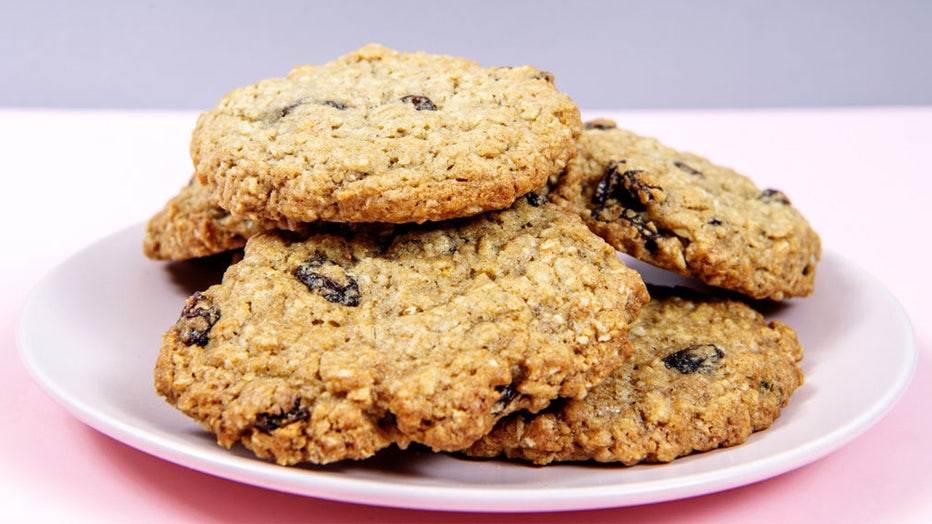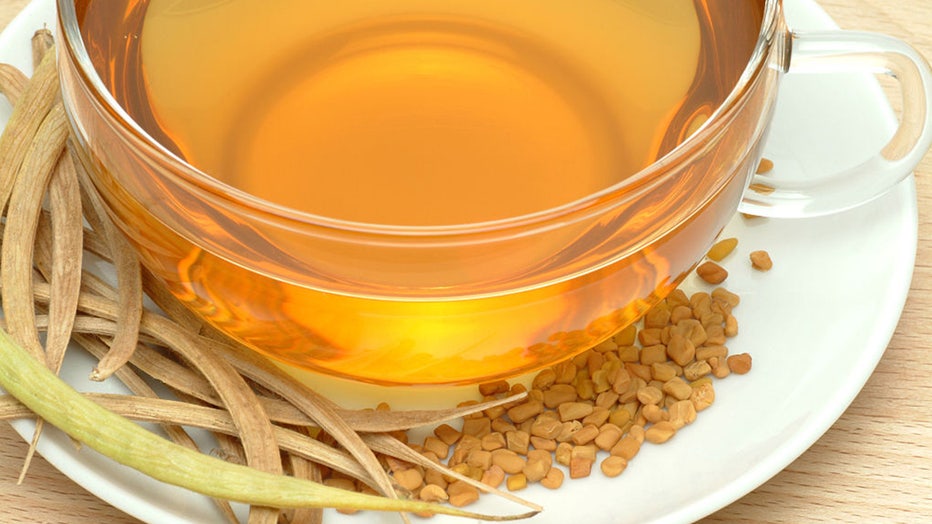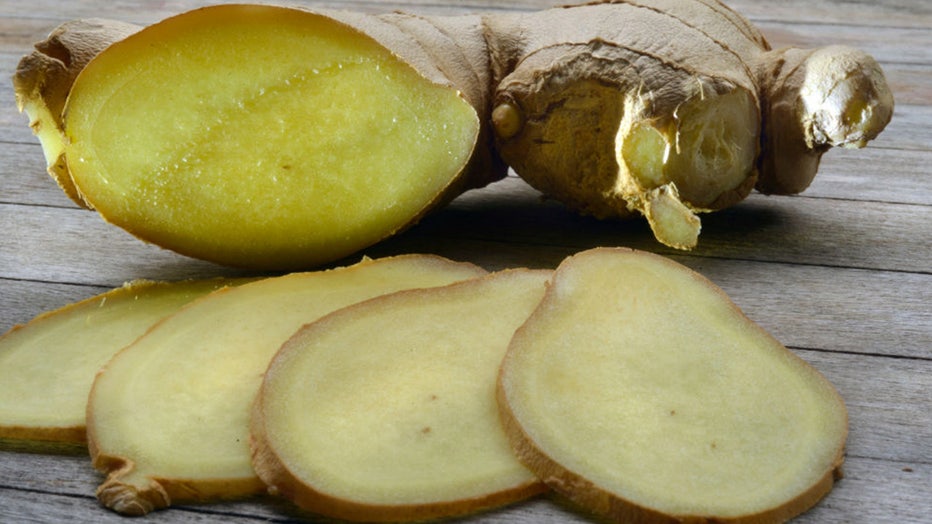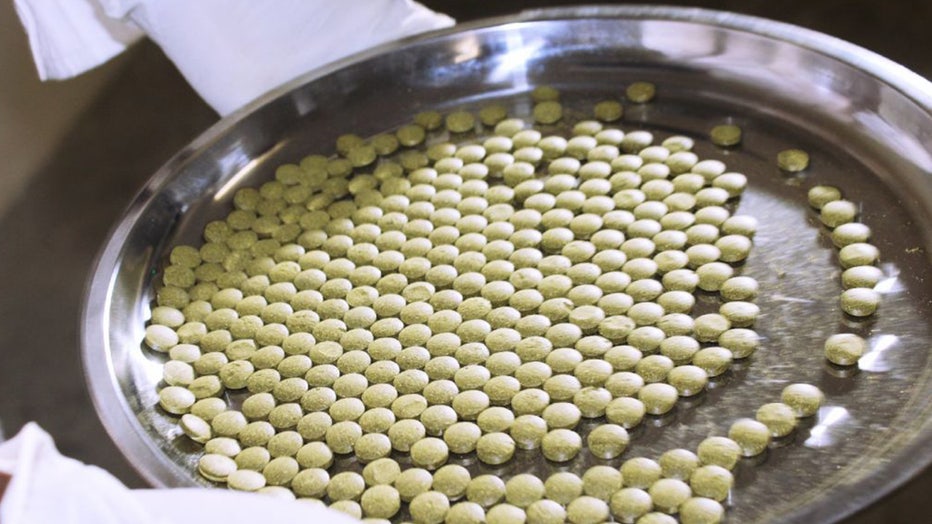Baby formula shortage: Which foods and techniques boost breast milk production?
Baby formula shortage has US parents on edge
Baby formula has become scarce on store shelves as the U.S. now faces more shortages amid supply chain backlogs.
Baby formula is the latest staple to be hit by supply chain shortages in the U.S.
Parents of newborns and babies under six months old have taken to social media to share their concerns after seeing barren store shelves.
Behind the scenes, online inquiries on how to "increase breast milk" have become a top search term in 38 states, according to recent data on Google Trends.
In particular, searchers are looking into foods and methods that increase breast milk supply.
BABY FORMULA SHORTAGE: KENTUCKY FAMILY REVEALS THEIR 'STRESSFUL' DRAMA
Here’s what lactation experts and health care professionals want mothers to know about breast milk production before turning to diet changes or tools.

FILE - A nearly empty baby formula display shelf is seen at a Walgreens pharmacy on May 9, 2022 in New York City. (Liao Pan/China News Service via Getty Images)
Foods, drinks and supplements connected to breast milk production
Rachel Taylor, a registered nurse, postpartum and lactation advocate from Birmingham, Alabama, has over 15 years of experience working with postpartum and breastfeeding mothers.
Taylor told Fox News Digital that she mainly recommends lactation cookies, teas, water and a few dietary supplements or ingredients that have demonstrated beneficial results for nursing mothers.
Lactation cookies
Many baby care manufacturers make prepackaged lactation cookies and other snacks for the purpose of increasing milk supply. These functional treats usually "include oats, brewer’s yeast, and flaxseed, all of which are galactogogues – molecules that help maintain and increase milk production," said Taylor. If you’d prefer to make your own cookies, Taylor recommends using rolled or steel-cut oats and no more than three tablespoons of brewer’s yeast (per day).

FILE - Oatmeal raisin cookies. (Mariah Tauger / Los Angeles Times via Getty Images)
Lactation teas
Manufacturers also produce lactation teas for the purpose of increasing milk supply.
These herbal teas typically "contain fennel and fenugreek," which have been shown to help breast milk production in research studies, Taylor said. In particular, fenugreek is found in "Mother’s Milk" teas and the clover-like herb has been used by lactating mothers for decades.

FILE - Fennel, Foeniculum vulgare. (FlowerPhotos/Universal Images Group via Getty Images)
"A 2018 study [in the National Library of Medicine] found that fenugreek users saw a significant increase in milk production," Taylor told Fox News Digital. "Some women saw an increase within 24 hours and some said it took about two weeks."
PEDIATRICIAN'S PLEA TO PARENTS: DO NOT MAKE YOUR OWN BABY FORMULA
If a mom wishes to take fenugreek supplements alone, Taylor said they should follow the supplement package directions. The FDA recommends pregnant and nursing women consult their health care provider before taking any dietary supplement.

FILE - Medicinal tea made of fenugreek (Bildagentur-online/Universal Images Group via Getty Images)
Water
Hydration "is crucial for a nursing mother," Taylor said. She recommends mothers drink at least eight cups of water per day to "maintain their milk supply." If a mom is still thirsty after drinking the recommended amount, Taylor said it’s OK for her to drink more water.

FILE - A woman fills a bottle with water. (Ian Forsyth/Getty Images)
Dr. Jessica Madden, the medical director at Aeroflow Breastpumps in Cleveland, Ohio, has a list of breast milk-boosting ingredients she recommends to nursing mothers as a board-certified pediatrician, neonatologist and lactation consultant (IBCLC).
Some of her top picks include milk thistle, ginger, apricots, dates, moringa and torabangun.
Here’s why –
Milk thistle
The milk thistle plant is a flowering herb that’s been found to increase prolactin – the hormone that’s responsible for milk production, according to Madden. It also has "other components" that lower estrogen, which is the state lactating mothers should be in during nursing, studies show.
The herb can often be found in ready-made teas.

FILE - Flowers of the milk thistle. (Bernd Wüstneck/picture alliance via Getty Images)
Ginger
Research suggests that ginger is a "potent galactagogue" and is commonly used in Asia to aid milk production, said Madden. The spice "works by increasing blood supply to lactating breasts," she added.
Whole ginger can be purchased fresh from grocery stores. The spice can also be found in powders, teas and supplements pills.

FILE - Fresh-cut ginger root. (Oedullstein bild via Getty Images)
Apricots and dates
These two fruits are commonly used in the Middle East for increasing milk supply, according to Madden. "They both work by increasing prolactin levels," she said. Lactating mothers can find these fruits in nearly any supermarket.
Moringa
The moringa plant, which can be found in supplements in the U.S., also "increases prolactin production by the pituitary gland," Madden said. "There are at least six research studies that demonstrate it helps to boost milk supply…[And it’s] very popular in the Philippines."
NORTH CAROLINA FOOD BANK DESCRIBES 'DEFINITE' IMPACT OF BABY FORMULA SHORTAGE
Moringa can be purchased in powder, capsule and herbal tea form in many drug stores.

FILE - Moringa tablets. (Sharon Tshipa/SOPA Images/LightRocket via Getty Images)
Torabangun
Another botanical that’s been connected to increased milk supply, but is "difficult to find in the U.S." is torabangun, which comes from "the mint family," according to Madden.
She said the "mechanism of action [in torabangun] is proliferation of mammary gland cells." It can be found in a few laction supplements.
Strategies and tools for increased breast milk production
Routine milk pumping is "the best way to increase supply," said Jackee Haak, a North Dakota-based registered nurse and board member of the United States Lactation Consultant Association.
"No matter what someone is eating, the most important factor in producing milk is frequent removal of milk," Haak told Fox News Digital. "Breastfeeding is all supply and demand."
CLICK HERE TO GET THE FOX NEWS APP
She said breast milk can be removed through feedings, specialized breast pumps or manually with hands.

FILE - A baby is given bottle-feeding. (Beata Zawrzel/NurPhoto via Getty Images)
"Many insurances cover breast pumps now, so it's always a good idea to check with them," Haak added. "[Mothers] are not alone. There are many lactation care providers who are willing and able to help."
Jada Shapiro, a NYC-based certificated lactation support counselor and founder of Boober – an online platform where parents find lactation counselors and doulas – told Fox News Digital that nursing mothers should practice patience when trying to increase their milk supply because it typically takes a few days.
Shapiro recommends "power pumping" for mothers who wish to increase milk supply within a week.

FILE - Breast pump on a desk. (BSIP/Universal Images Group via Getty Images)
"Power pumping is when you pump in a way that mimics cluster feeding or when a baby nurses for shorter times more frequently, which produces more milk," Shapiro explained.
"A lactating parent will pump for 20 minutes, rest for 10 minutes, pump for 10 minutes, rest for 10 minutes, pump for 10 minutes. The rest of your day you would pump or nurse normally and after adding in this power pumping session for three to seven days people typically see an increase in supply."
FOLLOW US ON FACEBOOK FOR MORE FOX LIFESTYLE NEWS
Shapiro said that lactating mothers also need to be mindful that they’re not waiting "too long" to pump or feed.
"Full breasts make less milk," said Shapiro. "Empty breasts make more milk."
She added that mothers shouldn’t hesitate to reach out to a lactation consultant if they need help producing more milk.
CLICK HERE TO SIGN UP FOR OUR LIFESTYLE NEWSLETTER
"Poor latch is often linked to lowered milk supply," Shapiro said.
Cortney Moore is an associate lifestyle writer/producer for Fox News Digital. Story tips can be sent on Twitter at @CortneyMoore716.

